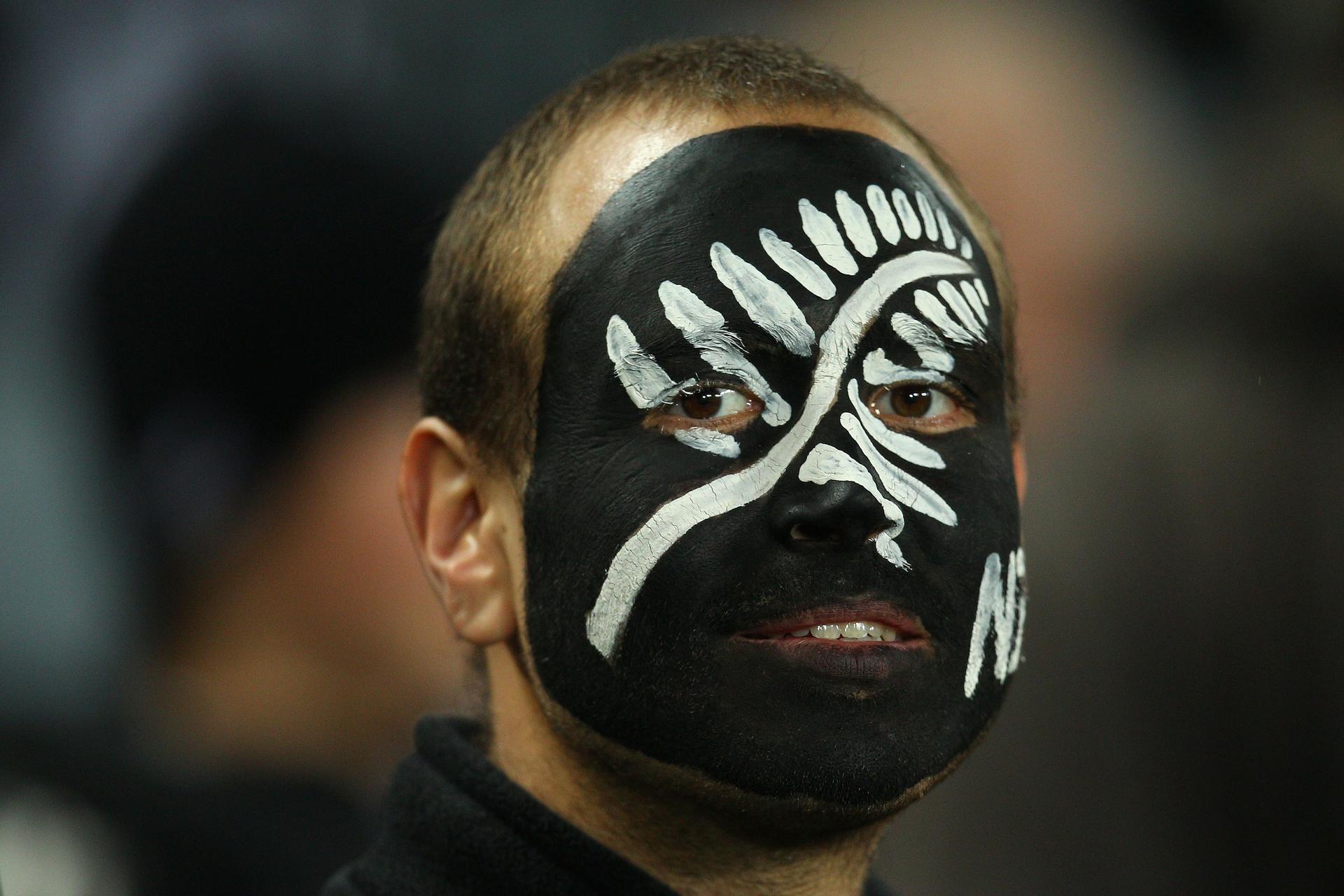Why is Australia putting so many “Kiwis” on a national security blacklist?
An All Blacks fan enjoys the atmosphere during the Tri-Nations Bledisloe Cup match between the New Zealand All Blacks and the Australian Wallabies at Eden Park on Aug. 6, 2011 in Auckland, New Zealand.
Chinese, Indian and — wait for it — New Zealand citizens dominate Australia's border control blacklist, newly unearthed documents show.
Chinese citizens make up 10 percent of the total 314,462 people — or 34,189 people — flagged by authorities as a potential threat to national security on the so-called Movement Alert List. Indians were the next most-flagged group, with 21,643 citizens on the watch list.
Then comes the strange part — New Zealanders are the next officially most-feared group, with 18,315 on the watch list, obtained by The Australian newspaper using freedom on information (FOI) laws. That's one step above Indonesians (16,271), despite long-held (and it must be said, unfounded) fears among Australians of the threats posed by its majority Muslim neighbor to the north.
If only the story told us why.
Viewed by the average Aussie, the most threatening trait of the average New Zealander (universally known Down Under as a "Kiwi") would likely be their ability to pass themselves off as Australian to the untrained ear.
Disconcerting to the Australian who doesn't like to be mistaken for a Kiwi, Brit or on rare occasions, South African — but hardly a reason to blacklist them, surely.
Some clarity may come from knowing that the blacklist takes into account not only "national security" considerations, but "health concerns."
While almost half those on the blacklist were reportedly singled out for national security reasons, a good proportion (11.08 percent) posed health concerns, primarily linked to respiratory illnesses like tuberculosis, the document indicates.
However, knowing some basic facts about the quality of life in New Zealand dispels this as a solid theory for why Australia is blacklisting so many Kiwis.
In terms of health, New Zealand performs very well when compared with other developed countries, according to the OECD's Better Life index. Among its achievements in ensuring the overall well-being of citizens:
- Life expectancy at birth in New Zealand is 80.4 years, more than one year above the OECD average;
- The level of atmospheric PM10 – tiny air pollutant particles small enough to enter and cause damage to the lungs – is 12 micrograms per cubic meter, and is lower than levels found in most OECD countries; and
- 97 percent of people believe that they know someone they could rely on in a time of need, higher than the OECD average of 91 percent.
Sure, Australians are the happiest people in the world — overall — according to the index, but New Zealanders seem to be doing better than okay.
Rugby fans may point to next month's Rugby World Cup as a possible source of nervousness for die-hard Aussies everywhere.
New Zealand's fearsome All Blacks on Saturday left no one in doubt they will be one of the favorites for the Cup, after a "clinical" 30-14 victory over Australia's "Wallabies" in a Tri-Nations match.
As if that wasn't enough, the Sydney Morning Herald reminded its readers that: "The All Blacks have won 75 per cent of all their Tests."
Don't put it past an Australian to consider sporting prowess as a matter of national security (or in this case, insecurity). Down Under wonders not if, but how many of those blacklisted Kiwis have at some point played rugby for the New Zealand national team.
Every day, reporters and producers at The World are hard at work bringing you human-centered news from across the globe. But we can’t do it without you. We need your support to ensure we can continue this work for another year.
Make a gift today, and you’ll help us unlock a matching gift of $67,000!
